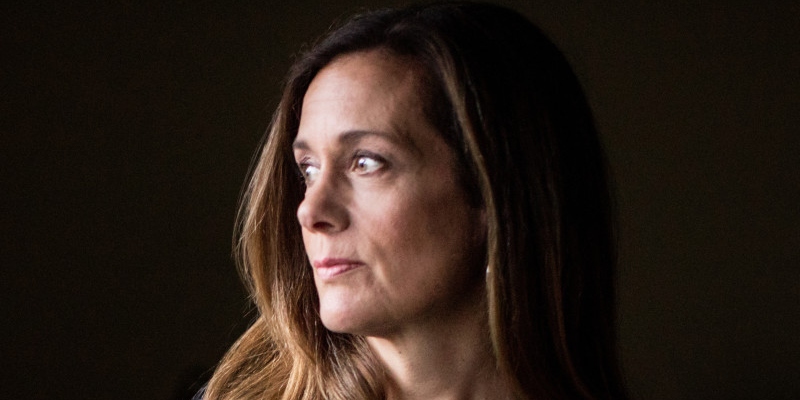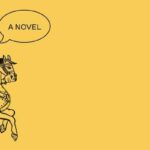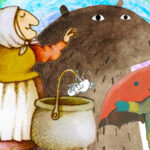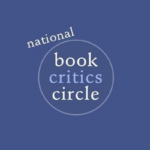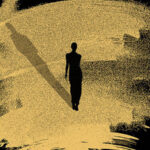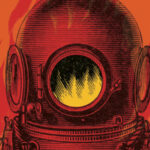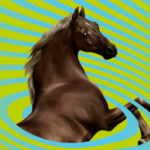Claire Dederer on Embracing Subjectivity
In Conversation with Maris Kreizman on The Maris Review Podcast
This week on The Maris Review, Claire Dederer joins Maris Kreizman to discuss her latest book, Monsters: A Fan’s Dilemma, out now from Knopf.
Subscribe and download the episode, wherever you get your podcasts.
*
From the conversation:
CD: When I started out as a critic, I was in my twenties. I was a young woman. It was the 90s, which is incredible to contemplate. And I was writing almost in a—I don’t wanna say instinctive because that’s a really complicated word—but I was writing a very subjective criticism almost from the start.
I knew I was a film critic, and I knew quite a lot about film—just as somebody who’d seen a lot of film, not in any professional or expert way, but as someone who had a lifelong interest in it. But my lack of authority really troubled me. My status as one of the only women in the screening room troubled me, and my ongoing inability to view the film as a critic was a problem for me. I kept slipping up and being the audience. I kept laughing at the funny parts and hiding at the scary parts and responding.
Eventually I came to write criticism from that point of view. I think in some ways, as a young critic, I did that partially because those were critics whose work I loved. And also because it was a way for me to diffuse the voice in my head that said, oh, I’m not an authority, I’m frankly just a girl. So I kind of owned that subjectivity. And that was my way of creating this sort of perverse almost-authority, by foregrounding the subjectivity.
As I grew older and started to really think about it, I realized that I was operating under a really false assumption, which is that someone else was the authority. This problem of the externally residing authority is an ongoing one in these conversations. I think there’s a way in which, if you are a woman or you are a person of color, or you’re a queer person, or you’re a person outside the traditional channels of white male—and I hate these sort of dunderheaded white male terms, but we are forced into this position—the white male maker who has the white male critic for a perceived white male audience, that’s the kind of pipeline that gets perceived as an objective relationship.
You have the maker who makes the great work or the not great work, and then these people perceiving it, and they’re never troubled by their own historicity, by their own culturally determined qualities, by their own racial perspective, their own class perspective. These things are invisible because they have not heretofore been made visible.
And those of us who are outside of this—and I do not mean to co-op to anyone else’s outsiderness—are forced to think of ourselves as subjective or non-central or looking at something from a specific historical perspective. And the fact is, we all are. It’s just the so-called objective critics who haven’t been put in a position of questioning that objectivity.
MK: One hundred percent, and it still feels radical to say that yes, our personal experiences affect how we view the world. But let me stop myself there because I used the word “we,” and I love how you talk about that word, the “we” versus the “I,” in the book.
CD: Yeah, and this relates to exactly what we were just talking about. I bring the “we” in for a kind of spanking at the beginning of the book, where I’m talking about “I myself am using the word we, we do this, we do that.” And I’m noticing, as a good memoirist notices, that I’m using that word and wondering, What’s going on there? Why am I using this word? And I’m realizing that “we” becomes this kind of mantle of authority. If I frame my position as this societal collective position, suddenly it has greater meaning and authority for which I have done no work except to change the pronoun.
And of course I slip up through the whole book. I sort of do this Buster Keaton wobble between “I” and “we.” As a nonfiction writer and thinker, “we” is a fantastic shelter, and I find myself there often, but then I’m kind of returning to the “I” and saying, I don’t know what to do about these artists, I don’t know how to feel, I am responding in this way.
This perspective has been called self-involved on Twitter by a man, and it’s not meant to place the self on a pedestal or to valorize this particular self more than any other. The idea is that by inhabiting my own subjectivity, I am automatically acknowledging its limits, and I’m also acknowledging the subjectivity of the reader. There’s a tacit agreement going on there, where I am hoping to have you think about it in the same way.
MK: In terms of other definitions, let’s talk about a couple of words that you define in the book, starting with the title of the book. What is a monster?
CD: So the word monster for me came up early. It was a word that was in the—sorry—discourse around the time of fall 2017. And of course, we had already been thinking about the word, the phrase art monsters—or not “we all,” but many of us had read Jenny Offill’s book, Dept. of Speculation, in which she talks about the idea of the art monster as the person who gets to think about art all day long and doesn’t have to remember the umbrella or lick the stamps or do any of the other work of life. So that book really introduced the word monster in a specific way, but it also was part of the culture of allegation and accusation that was rising in 2017. Necessarily, of course, but there was a way in which that word was often used. So I started using it in that context.
And it wasn’t very long before I realized that it was a problem. The word “monster” was a problem because first of all, it others the monster. Second of all, it puts a lot of emphasis on them rather than on the viewer. And most of all, it does not encapsulate enough what my definition is. My feeling about the word monster is I simply mean a person whose biography, something they’ve done, disrupts our experience of the work. That’s what I was really talking about, and I began to look around for another metaphor that might do the trick.
MK: And that’s where you bring in the idea of the stain. I really love that metaphor, especially when you talk about retroactive stains, like knowing what we know now about Michael Jackson. If a Jackson Five song comes on in the pharmacy and you tap your feet, what does that mean?
CD: Right. So I come to this idea of the stain, that this person’s behavior has stained the work. And the thing that’s so incredible about the image of the stain, which other people have thought of before me, is the way that it brings in the idea of indelibility. There’s a way in which we talk about monsters or the problem of the separation of the art from the artist, which is such a tiresome way to talk about it. It suggests a voluntary quality on the part of the audience member that we’re choosing to see it this way. And what I love about the stain is that indelibility is not voluntary, just like the glass of wine that falls on the carpet. You don’t get to decide that you now have this problem of this blotch.
Knowing what we know or hearing what we have heard, in some cases—and in this case about Michael Jackson—we can’t unknow that. And yet you hear “I Want You Back” or you hear “Rockin’ Robin,” and you still love it. And it makes us do these weird sort of mental gymnastics: Well, that was before, that was when maybe Michael Jackson was a victim and that was before he did the wrong thing. And for me, I find that it’s much easier for me to consume the work of Polanski from before he did his crime, and that doesn’t really make much sense. But at any rate, it is a response that we have.
*
Recommended Reading:
Happy All the Time by Laurie Colwin • The Essential Dykes to Watch Out for by Alison Bechdel
__________________________________
Claire Dederer is the author of Love and Trouble, and the New York Times best-selling memoir Poser: My Life in 23 Yoga Poses. A book critic, essayist, and reporter, Dederer is a longtime contributor to The New York Times and has also written for The Atlantic, Vogue, Slate, The Nation, and New York magazine. She lives near Seattle with her family. Her latest book is called Monsters: A Fan’s Dilemma.

